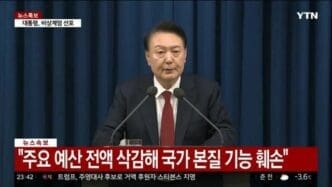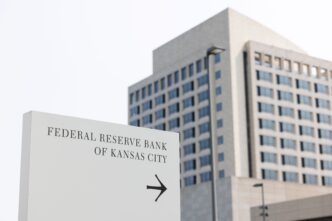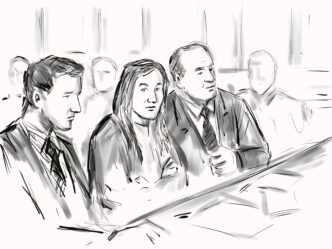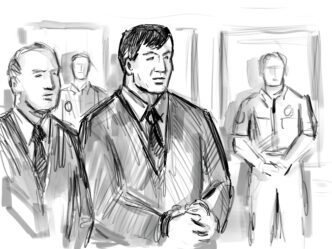In a significant development in South Korea’s political landscape, the Seoul Western District Court has issued warrants to detain the impeached President Yoon Suk Yeol and search his office. This action is part of an investigation by the Corruption Investigation Office for High-Ranking Officials into Yoon’s recent martial law declaration, which has sparked substantial controversy.
The investigation centers around whether President Yoon’s martial law decree, instituted earlier this month, constitutes rebellion. The decree, however brief, has resulted in considerable political upheaval, suspending Yoon’s powers after the National Assembly voted to impeach him on December 14. Although the Constitutional Court is yet to decide on Yoon’s future, his non-compliance with investigation requests has complicated the political scenario.
Yoon, protected by presidential immunity, is exempt from criminal prosecution for certain charges, but this immunity does not cover accusations of rebellion or treason. The anti-corruption agency has expressed uncertainty about the next steps concerning the warrants, which have been challenged by Yoon’s lawyer. The lawyer claims the agency lacks the legal grounds to pursue rebellion charges.
Despite skepticism about detaining Yoon due to potential conflict with presidential security, which has barred attempts to inspect his office, the issuance of warrants signifies an escalation in the ongoing investigation. Security concerns have been cited by the security service to prevent searches at high-security locations without requisite approvals.
Yoon’s martial law decree, though rescinded after six hours, caused significant disruption, stalling diplomatic efforts and affecting financial markets. He had deployed military forces to prevent a legislative vote on the decree, which was ultimately reversed by legislators. Yoon has defended his actions as necessary governance, criticizing the opposing Democratic Party as hostile and subversive.
The political crisis has further intensified following the impeachment of acting President Han Duck-soo. This move, supported by the Democratic Party and other minor opposition groups, stemmed from disputes over judicial appointments to the Constitutional Court, which could influence the court’s judgment on Yoon’s impeachment. In this volatile context, Deputy Prime Minister Choi Sang-mok has assumed interim leadership.
The unfolding political drama in South Korea underscores the tension between governmental institutions and highlights the challenges faced in navigating legal and political processes during a crisis. As the situation develops, the focus remains on the Constitutional Court’s impending decision and its implications for the country’s leadership.
Source: Wsvn








